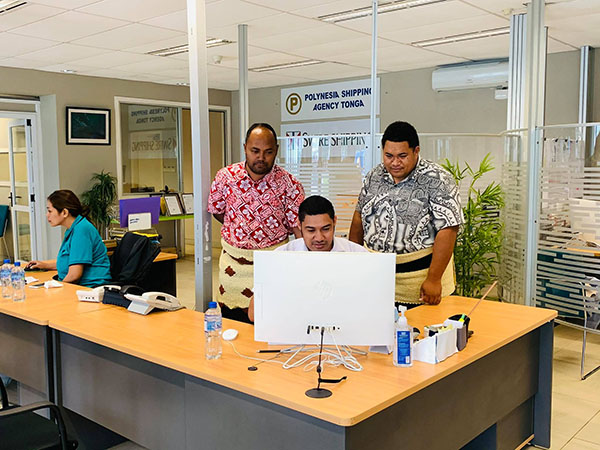Some of the smallest island states in the Pacific are on course to lift the value of their exports, through significant changes to their customs procedures.
The Cook Islands, Kiribati, Nauru, Niue, Tonga and Tuvalu will each adopt a program that has significantly boosted world trade since 1981.
The venture is being backed by Australia and New Zealand, which have agreed to fund the work.
Implemented by the United Nations Conference on Trade and Development (UNCTAD), the software program – known as ASYCUDA (Automated System for Customs Data) is a computerised customs management system, which covers most foreign trade procedures. It has been used by more than 120 nations over the past 40 years, including some of larger Pacific island countries; with the support of Australian funding.
ASYCUDA World is the latest version of the program and it incorporates current innovations in open web based technology.
It is credited with helping Vanuatu increase its annual customs revenue by more than US$59 million between its 2014 rollout and 2018.
The system has been used by larger nations in the Pacific such as Fiji and Samoa but was considered for many years to be too complex to be used by smaller administrations.
Upon request, a Proof-of-Concept study was carried out in Kiribati to develop a specific approach for the deployment of ASYCUDA in smaller customs administrations.
The findings indicated that program could support entire customs clearance procedures in smaller administrations.
ASYCUDA World includes comprehensive capacity building to ensure long-term sustainability. It enables developing countries to speed up customs clearance and increase customs revenue – a major contributor to national budgets. It can also promote e-commerce and digital government transactions.
It benefits national economies by providing reliable data to inform policymaking and assists governments to promote cross-border trade and combat fraud and illegal trafficking of prohibited and restricted goods.
The program is expected to increase efficiency and shorten time for clearance due to functionalities and features such as:
- Electronic remote lodgement of declarations
- Linked declaration and manifest
- Linked declaration and payment
- Customized management reports to meet country and regional formats.
Australia’s role in funding the deployment of the program is due to its participation in the regional free trade and development agreement known as the Pacific Agreement on Closer Economic Relations Plus (PACER+).
A key objective is to support Pacific island countries benefit from regional and global trade through effective demand driven trade related assistance. PACER+ covers trade in goods and services, investment, temporary movement of natural persons, development and economic cooperation, institutional arrangements, transparency, and consultation and dispute settlement.

